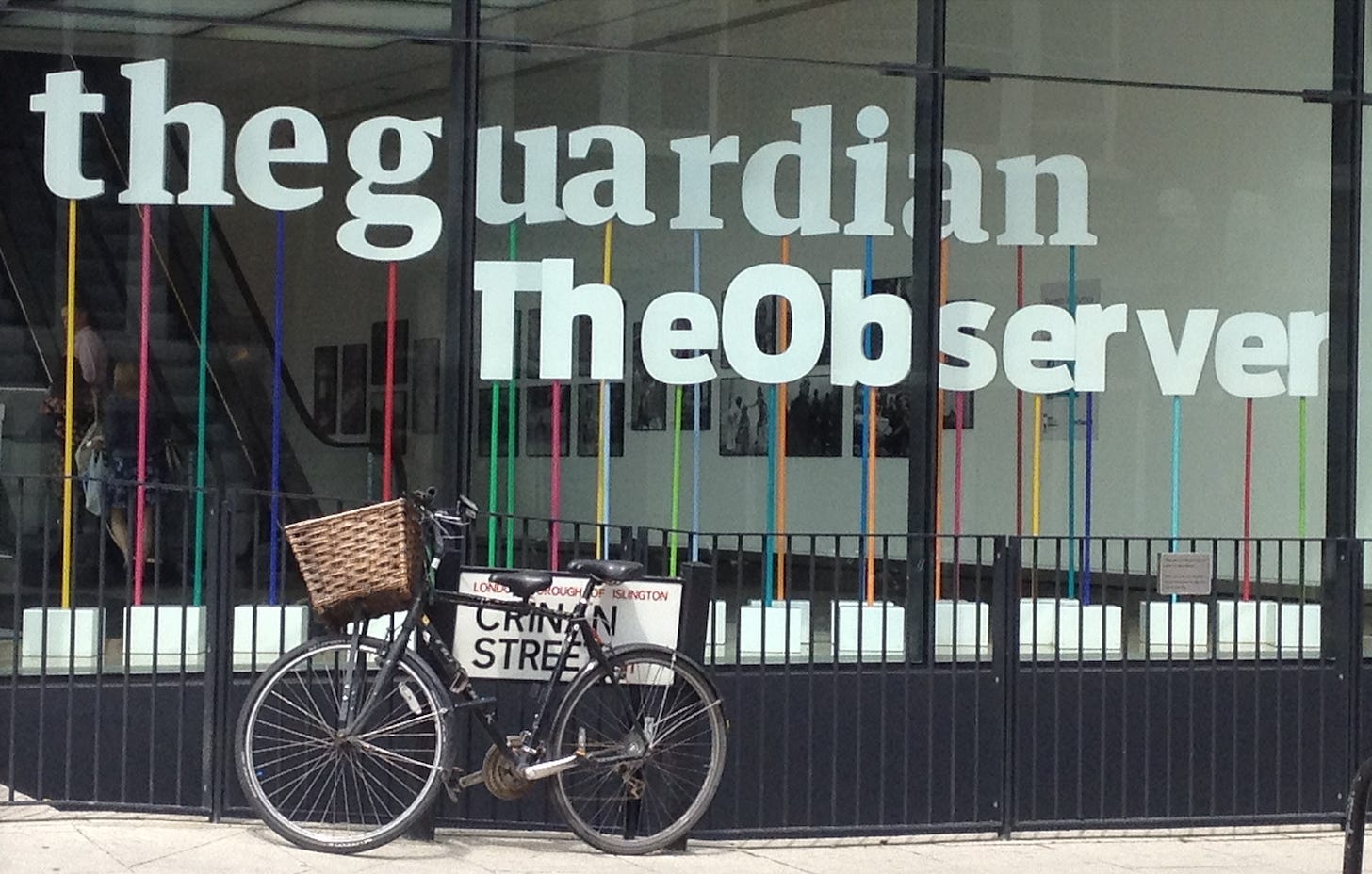The Guardian is not our friend, as the strike by its staff highlights
Either Guardian journalists don't care about police accruing powers to jail journalists for doing journalism, or they have no real control over the material the paper publishes
Guardian journalists have probably the strongest chapel of the main journalist union in Britain. Strong enough that they were able to organise a strike this past week over the sale of the Guardian’s sister Sunday paper, the Observer, to Tortoise Media.
And yet the Guardian chapel of the National Union of Journalists has not gone on strike over the recent raid by counter-terrorism police on a fellow journalist, Asa Winstanley, with threats to lock him up for 14 years for writing against the genocide in Gaza.
Maybe in our current era that is too much to expect. But the same chapel has not even issued a statement condemning the hounding of Winstanley and other journalists under counter-terrorism laws, in what amounts to a massive assault by the British state on press freedom.
Nor has the chapel insisted that its own newspaper, the Guardian, run a single story about the persecution of Winstanley and other journalists as supposed “supporters of terror”. There has been complete silence.
Only two conclusions are possible:
Either Guardian journalists don't actually care about the police accruing powers to jail journalists for doing journalism.
Or Guardian journalists have no real editorial control over the material they publish, and it is the paper's management that imposes the editorial agenda from the top.
When I worked at the Guardian and Observer newspapers through most of the 1990s, I reached the conclusion that it was the latter. Most journalists were so grateful to be part of a vaguely “left” newspaper – given that the other choices were working for Murdoch or the Daily Telegraph – that they dared not upset the apple cart.
They have once again demonstrated that they can find a collective backbone only when their jobs, rather than the principles of a free press, are under threat.
It is not as though we haven't been here before. We saw the same Guardian management playbook when Julian Assange was hounded by the British state for a decade, and locked up in a high-security prison for years while the US government sought his extradition for doing journalism that exposed the high crimes of the British and US states.
The Guardian gave this concerted, years-long attack on press freedom the most minimal, grudging coverage possible. No one broke rank.
The Guardian is not our friend. Whatever individual journalists there may feel, the paper as an institution doesn't care about journalism or press freedom. And if it doesn't really care about press freedom, it doesn't really care about any other freedoms. Because all those other freedoms are contingent on a free, critical press.
There is, however, one freedom the corporation that owns the Guardian cares about: the freedom to make money, to market the paper as "on the left" to win over customers who identify with the brand of a left-liberal newspaper.
That doesn't mean the paper always needs to be commercially profitable – though that is doubtless a nice bonus. But the Guardian does need to profit the much bigger corporation, the Guardian Media Group, it is embedded in.
It does that by exclusively occupying a space in the marketplace – appealing to a liberal-left demographic – so no real leftwing publication, run by journalists rather a media corporation, can take its place and properly inform its readers about the state of the world.
The Guardian occupies a key part of the media space – our modern town square – so that no one better qualified to occupy it can get a look in.
It is there to kill real dissident journalism, to kill truly independent journalism from the likes of Asa Winstanley. It is there to make sure "mainstream" left journalism mirrors closely the "mainstream" political left: Keir Starmer's Labour party, with all its authoritarian, City of London-pandering, Nato-worshipping instincts.
The Guardian is not our friend. It is time we stopped sleeping with the enemy.
[Many thanks to Matthew Alford for the audio reading of this article.]
All my posts are freely accessible, but my journalism is possible only because of the support of readers. If you liked this article or any of the others, please consider sharing it with friends and making a donation to support my work. You can do so by becoming a paid Substack subscriber, or donate via Paypal or my bank account, or alternatively set up a monthly direct debit mandate with GoCardless. A complete archive of my writings is available on my website. I’m on Twitter and Facebook.





i don't read the guardian. i read asa winstanley, the electronic intifada, jonathan cook, and many others who write from the heart, not for the corporation.
Yes, this nails it. It took me a while to wake up to it. The Assange was the first, and then the rest soon became obvious.